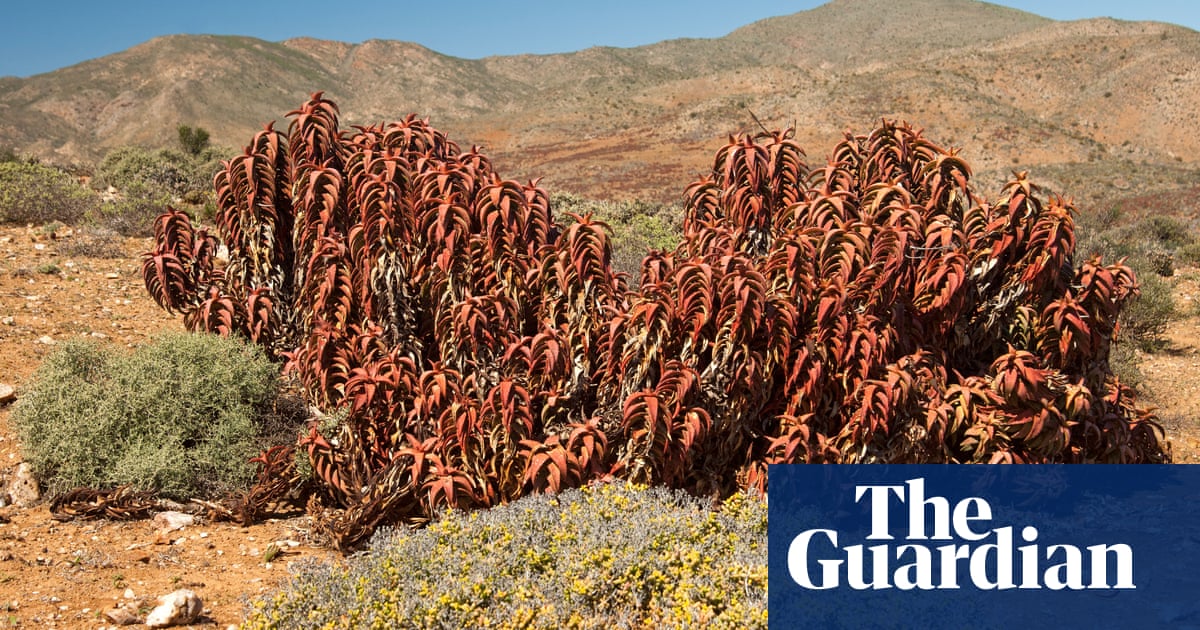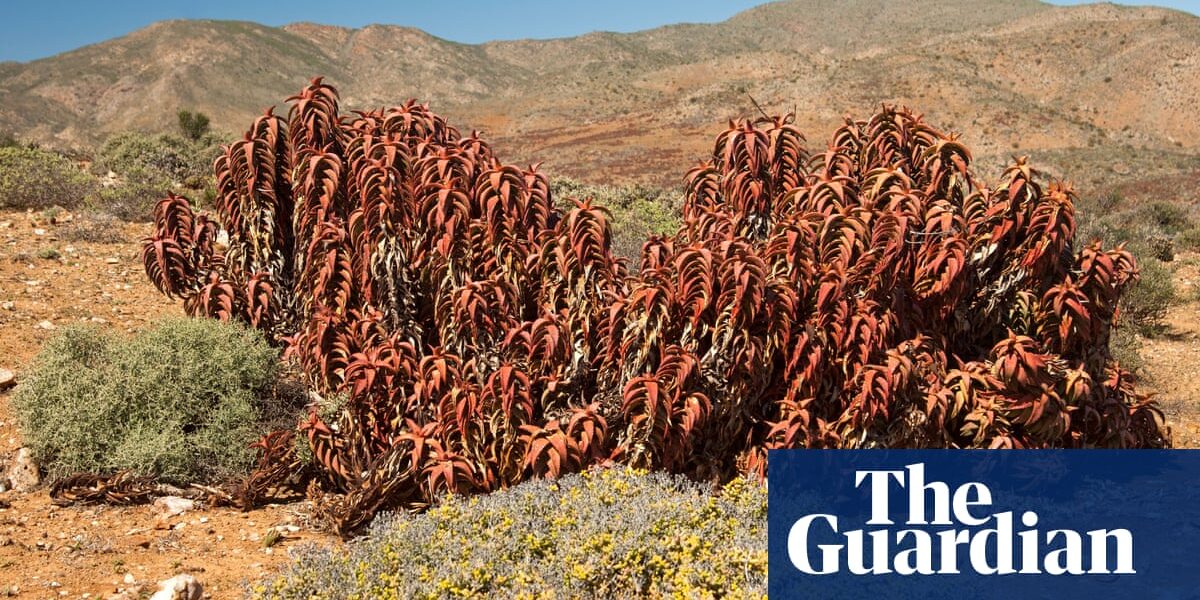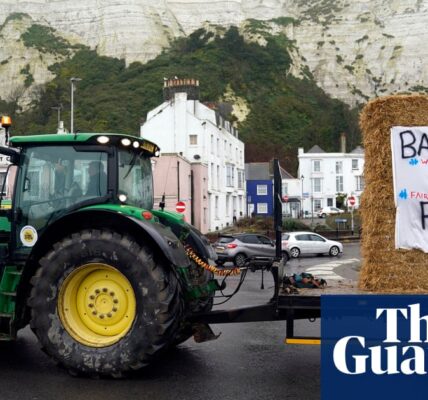British succulent society chair quits over row about taking specimens from wild

A furious row has blown up in the UK’s leading succulent society over the practice of taking desirable specimens from the wild, with the chair resigning in protest over the behaviour of his fellow enthusiasts.
Succulents have risen in popularity in recent years: they are attractive and hardy.
A succulent won the Royal Horticultural Society plant of the year award in the UK in 2022, while the plants have also become wildly popular in Asian countries, leading to a massive boom in demand.
However, the drought-tolerant plants are often sourced from the wild. South Africa is home to a third of the world’s succulent species, and a huge number of plants come from there, according to scientists.
There is also a growing succulent smuggling crisis in California, where some rare types grow. Some countries have taken drastic action: it is, for example, illegal to take cacti out of Mexico.
The practice has become increasingly divisive in the succulent world but many regard it as the norm.
Now Dr Gregory Bulmer, the chair of the British Cactus and Succulent Society (BCSS) since 2022, has said he can no longer remain in post because of the promotion of succulents dug up from their native habitats.
Bulmer had introduced a policy requiring that plants that had been “removed from habitat” – the standard way of referring to plants taken from the wild – not be exhibited or given prizes at the society’s shows.
In an email to members, he said: “We must be forward thinking when considering the long-term reputation of the society. Established practice that may seem the norm for some members, such as the competitive showing of plants removed from habitat, can be viewed harshly by a general public more aware of biodiversity loss.”
But the policy has led to such consternation that Bulmer said that he had no choice but to quit.
“As the governing body, the trustees must ultimately have the ability to set policy which they view is in the best interest of the charity. Despite a vote by trustees at the end of last year to ban these plants from BCSS shows, it has become apparent that sustained and strong opposition against implementing this ban from those at various levels throughout the society would make this undeliverable,” he said.
“I no longer feel that I have the support I need to deliver meaningful change to the charity and I have decided to step down as chairman of the BCSS with immediate effect.”
Pat Collins, an expert in succulents, used to be a member of BCSS but quit because of the lack of enforcement on taking the plants from the wild.
He said: “There has always been some tension between the gardening aspect and the conservation aspect of the society. There are still many senior members who bought plants ripped from habitat in the 60s and 70s who see no problem with continuing.”
Collins added that a host of senior members of the society had also quit over the prevalence of plant poaching.
However, some members of the society think the ban would be unenforceable. Writing in a members-only forum, seen by the Guardian, one enthusiast said: “Many of the plants now that may be assumed to be collected plants by a show judge, may actually not be.
after newsletter promotion
“There doesn’t seem to be any foolproof way of proving a plant is ex-habitat or simply an old plant grown from seed or cuttings, especially if it has been grown hard or perhaps even slightly neglected in an old collection?”
Another agreed, adding: “All the plants we grow were at one time collected from habitat as either plants, seeds or cuttings. It’s just how far you want to go back … Then there is the issue of the Mexican plants that have no legal route to being here – do we ban those as well?”
Scientists at Kew Gardens, the UK’s leading plant research facility, have supported Bulmer in his position. Kew fights against plant smuggling, working with the UK government to stop the practice, and has written previously about thieves lifting rare specimens from its greenhouses in south-west London.
Paul Rees, a nursery manager at Kew, told the Guardian: “The Royal Botanic Gardens, Kew, strives to prevent the loss of biodiversity and conserving plants in habitat, and ex-situ conservation collections is vital to achieving this.
“A recent increase in poaching of plants from arid habitats is placing even more pressure on many threatened succulent species, many of which are listed on Cites [Convention on International Trade in Endangered Species of Wild Fauna and Flora]. Kew supports organisations and initiatives aiming to conserve wild plants and tackle the illegal trade of plants.”
The Royal Horticultural Society (RHS) said it also did not allow succulents taken from the wild to be entered in its shows, including Chelsea flower show.
Sara Redstone, the biosecurity lead at the RHS said: “Plants, while beautiful and fascinating in and of themselves, need to be considered and respected within their context, supporting an entire ecosystem in their country of origin that includes wildlife and local people that may rely on them for food, medicines and other needs.
“Poaching plants from the wild poses a risk both to UK biosecurity and to plant species in the wild.”
A BCSS spokesperson said tthe society “fully backs the ban on habitat plants in its shows”.
Source: theguardian.com



